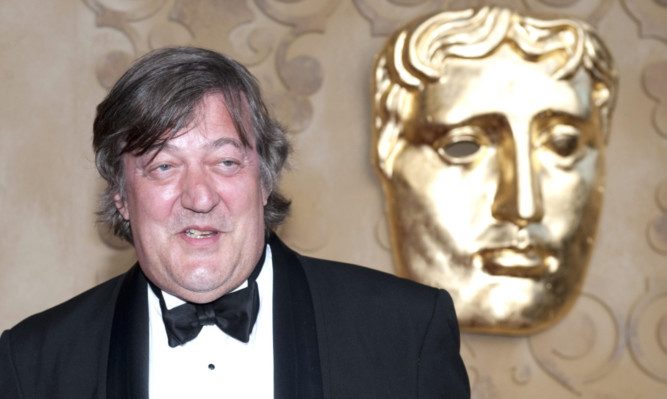
ON the surface Stephen Fry has it all. Whatever he turns his hand to, whether it’s acting, writing or presenting, he appears to achieve huge success with the greatest of ease.
He is intelligent and well loved with a coterie of witty, interesting friends and has a rich social life.
So from the outside looking in, it is baffling to discover that he has once again attempted suicide. But it’s only those who have suffered from a severe mental illness themselves who can really understand.
In a very honest and open interview with comedian Richard Herring, Stephen vividly described taking a mixture of vodka and pills in his hotel room last year while filming in Africa.
He became unconscious and went into such strong convulsions that he broke four of his ribs. He was only saved because his producer found him in time and managed to get help.
Stephen was filming for a documentary series called Out There. In his programme, he tackled what it is like to be gay in different parts of the world. This included Uganda where homosexuals can be jailed and there are even calls for them to be executed.
Perhaps this all contributed to his suicide bid and feelings of utter despair.
Stephen has been incredibly open about his depression, and as chairman of the charity MIND he does a brilliant job in helping people understand mental illness.
There is still stigma about mental health and sufferers are often scared to seek help because they fear they may lose their job or that they will be shunned. People are sympathetic if someone has a broken leg, but less so if they have a
broken mind.
Mental illness can strike anyone. People who have had glittering careers can suffer just as much as someone who is in the gutter. It may be bewildering to realise that such diverse individuals as Stephen Fry, writer Marion Keyes and Corrie’s Beverely Callard have all suffered depression. They’re hugely successful, but that hasn’t cushioned them. In fact Stephen admitted that even when he is filming QI and laughing and joking, inside a voice is screaming that he just wants to die.
By being so very honest about his illness, I think it really helps other people realise they are not alone. What we need is better treatment and understanding. It’s never ever acceptable to tell people to have a stiff upper lip and pull yourself together.
That’s not just unhelpful, it is also deeply insulting and potentially fatal.

Enjoy the convenience of having The Sunday Post delivered as a digital ePaper straight to your smartphone, tablet or computer.
Subscribe for only £5.49 a month and enjoy all the benefits of the printed paper as a digital replica.
Subscribe